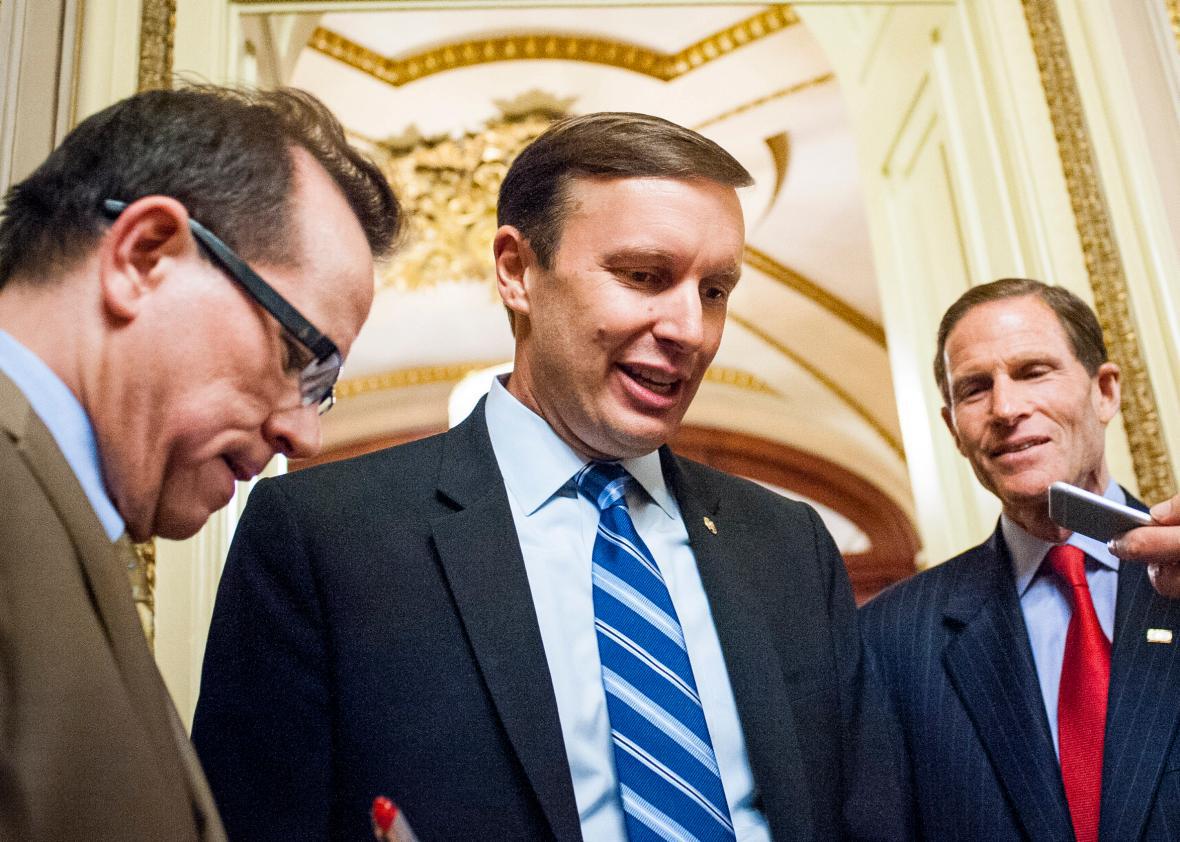Shortly after 11 a.m. on Wednesday, Connecticut Sen. Chris Murphy took to the Senate floor to make an impassioned plea for stricter gun laws in the wake of this past weekend’s mass shooting in Orlando, Florida. “I’ve had enough,” he began. With the help of several dozen of his Democratic colleagues, Murphy would hold the floor for the next 14 hours and 50 minutes. His lengthy and unexpected filibuster was a powerful and even cathartic moment given that for far too long Washington’s official response in the face of similar tragedies has been literal silence.
So what did all that talking accomplish?
Murphy claimed victory by announcing that he had won informal assurances from Republicans that, during consideration of a must-pass spending bill, they will allow votes on two gun-control amendments currently being pushed by Democrats: one aimed at banning individuals on the FBI’s terrorism watch list from buying firearms and a second that would expand background checks. “Now we still have to get from here to there,” Murphy said as he wrapped up the filibuster. “But we did not have that commitment when we started today, and we have that understanding at the end of the day.”
It’s a hollow victory—and not simply because in the unlikely event either bill were to pass the Senate it would die a quick death in the House. The truth is that Murphy and his fellow Democrats knew they would have almost certainly gotten those same votes even if they hadn’t taken to the Senate floor to demand them. While Republicans control the upper chamber, they don’t have the 60-seat supermajority they need to simply do as they wish. That gives Democrats a certain degree of leverage in these situations. Shortly after San Bernardino, for example, Democrats requested—and received—votes on versions of the very same two proposals they’re currently pushing, with no filibuster required. Republicans are suggesting the same thing would have happened this time around, and it stands to reason that they’re right, particularly given they want to introduce their own amendments to the bill.
That’s not to dismiss Murphy’s talkathon as a meaningless political stunt. Let’s call it a meaningful political stunt instead. Murphy and his colleagues spoke eloquently about the emotional pain caused by gun violence as a way to make the case for new restrictions. In the process, they won a significant amount of attention for their cause—from traditional news outlets, as well as on social media—and that is a necessary step on the long path to solving the nation’s gun problem. Yes, it was political theater, but politics is often theater. Sometimes the only way to reach your audience is to take the stage.
The larger issue, though, is not that Murphy was grandstanding; it’s what he was grandstanding for. Expanding background checks is a worthy goal, but Democrats’ newfound focus on using the terror watch list to keep guns out of the hands of potential terrorists raises serious civil liberty concerns. The Supreme Court has declared the right to bear arms a fundamental right that is protected by the U.S. Constitution’s Due Process Clause. As Slate’s Mark Joseph Stern explained earlier this week, you can disagree with SCOTUS, but the fact remains that using the FBI’s watch list for gun control purposes would set a dangerous precedent:
If the government can revoke your right to access firearms simply because it has decided to place you on a secret, notoriously inaccurate list, it could presumably restrict your other rights in a similar manner. You could be forbidden from advocating for causes you believe in, or associating with like-minded activists; your right against intrusive, unreasonable searches could be suspended. And you would have no recourse: The government could simply declare that, as a name on a covert list, you are owed no due process at all.
Perhaps this is why Donald Trump says he’s open to the idea. The presumptive GOP nominee has made it clear he sees all Muslims as a threat, and tying rights to a secret list would give President Trump’s FBI an actual legal tool to codify that dangerous and ill-founded belief into U.S. policy.
There were a number of important moments during Murphy’s filibuster, but perhaps none more telling than when the senator spoke of his desire to comfort those who have lost loved ones to gun violence. “Just speaking personally, I need to be able to tell them something,” he said. “They need to be able to hear something that helps in their healing. … And their process of healing for many of them is encumbered by the fact that their leaders are not doing anything to stop it.” The Democrats’ desire to do something, anything in the face of a tragedy is understandable, particularly when the NRA and its congressional allies have blocked even the smallest gun reforms. Something, after all, is a start. In this case, though, they’d be starting the wrong thing.
